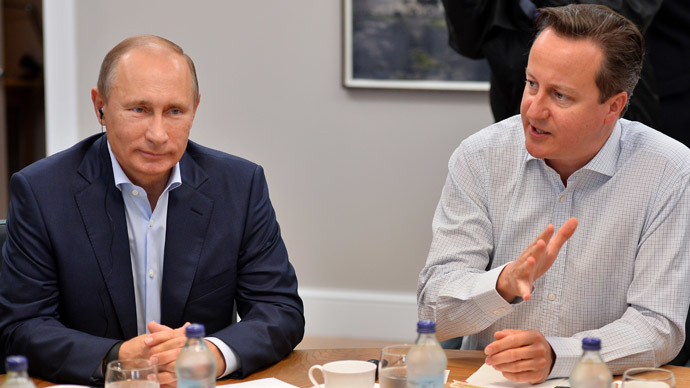Russia, UK kept up a positive momentum in 2013

The events of the last year have confirmed the normalisation of political dialogue between Russia and the UK has become a steady trend.
Our relationship has been developing in a sustainable way, moving in the right direction to serve our mutual interests, notwithstanding irritants, inherited from the past, which remain to be resolved.
The political leaders set the right, results-orientated tone. Over the past year and a half, President Vladimir Putin and Prime Minister David Cameron have met six times and had regular telephone conversations.
A new mechanism, the Strategic Dialogue of Foreign and Defence Ministers, has been launched. The first “2+2” meeting was held in March in London, while the second is scheduled for next spring in Moscow.
Russia and the UK have maintained an active dialogue at other levels, including consultations between the foreign ministries. There was agreement on some topics and serious differences on others. But wherever the interests of the international community required and the situation allowed, the differences did not prevent us from reaching an agreement, in particular, on the Iranian nuclear programme and the Syrian crisis.
Our positions are especially close on such pressing international issues as safeguarding stability and security in Afghanistan following the withdrawal of foreign troops, and the Middle East peace process.
As permanent members of the UN Security Council, Moscow and London pursued an agreed policy on the reform of the UN and it's Council. Russia’s G20 presidency and the UK presidency of the G8, as well as Russia’s G8 presidency in 2014, have provided another dimension to our cooperation.

There has been dynamic growth in trade and economic cooperation. The UK is one of Russia’s leading trade partners. In three quarters of this year, trade reached $17.5 billion (£10.7 billion), with UK cumulative investment in Russia at $24 billion, and Russia’s investment in the UK $9 billion.
Considerable attention has been focused on energy co-operation. The first meeting of the Russian-British High-Level Energy Dialogue, was held in London on June 10. On the agenda is a possible increase in the direct supply of Russian natural gas to the UK, and the enhancement of nuclear energy cooperation with the potential entry of Russian advanced technology into the UK market.
On September 18, Vice President Arkady Dvorkovich and the Secretary of State for the Environment, Food and Rural Affairs, Owen Paterson, endorsed our veterinary services’ agreement to lift the temporary ban on the import of UK beef and lamb by-products to Russia. The ban on beef and lamb had been lifted earlier.
Both parties recognise the potential for co-operation in technology and innovation. A programme of co-operation for the near future was endorsed by the 11th meeting of the bilateral Committee on Scientific and Technical Co-operation held in October in London.
Financial co-operation is another important area. It includes creating a Moscow International Financial Centre, as well as the participation of British firms in preparations for the Sochi 2014 Winter Olympics, the Summer Universiade in Kazan and the 2018 World Cup in Russia.
Traditional cultural exchanges are to be brought to a higher level. In March, the two foreign ministers issued a joint statement on holding a Russia-UK Year of Culture in 2014. There are plans for more than 250 events.
The historical and emotional dimension of our relationship is of crucial importance. Having established the Arctic Star medal, Britain granted permission for its veterans of the Arctic Convoys to be awarded the Russian Ushakov Medal. In 2014 our countries will take part in events to mark the centenary of the First World War, in which we were also allies.
The statements, views and opinions expressed in this column are solely those of the author and do not necessarily represent those of RT.
The statements, views and opinions expressed in this column are solely those of the author and do not necessarily represent those of RT.













